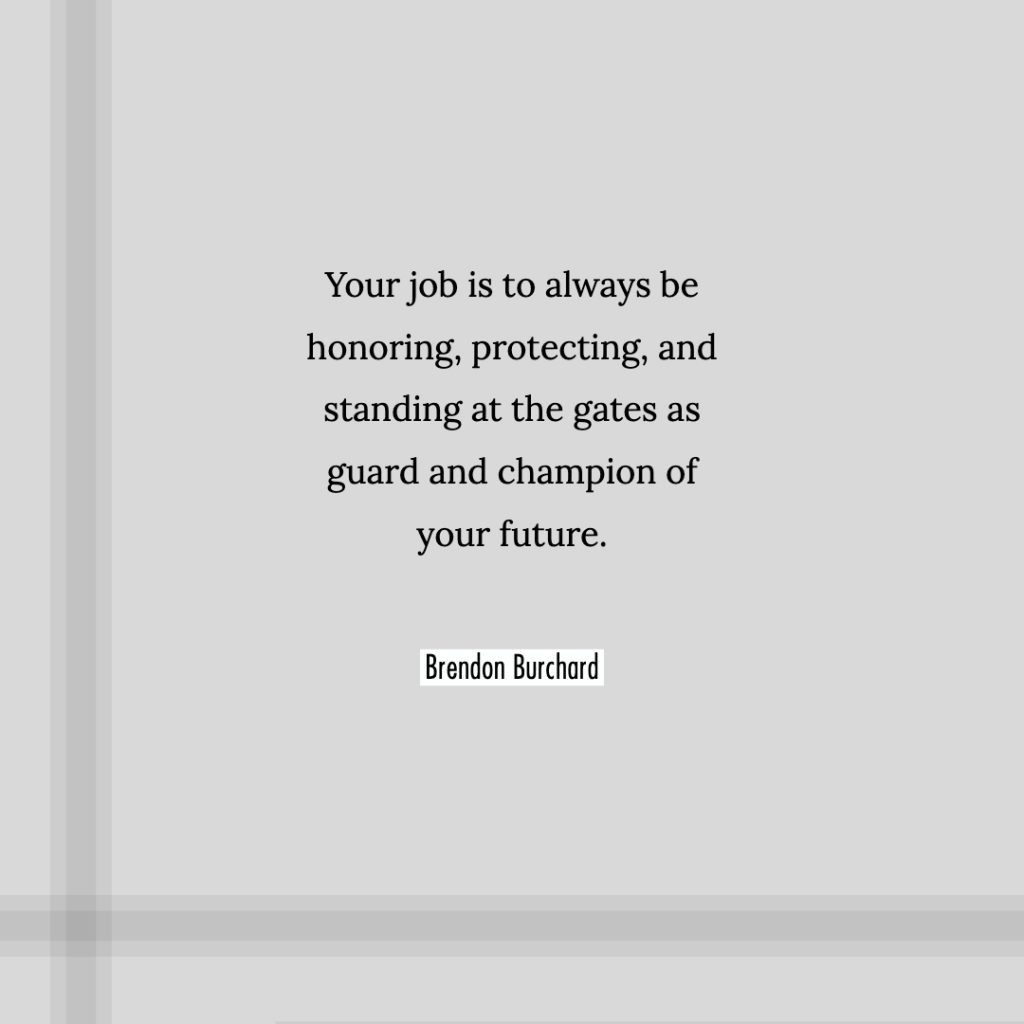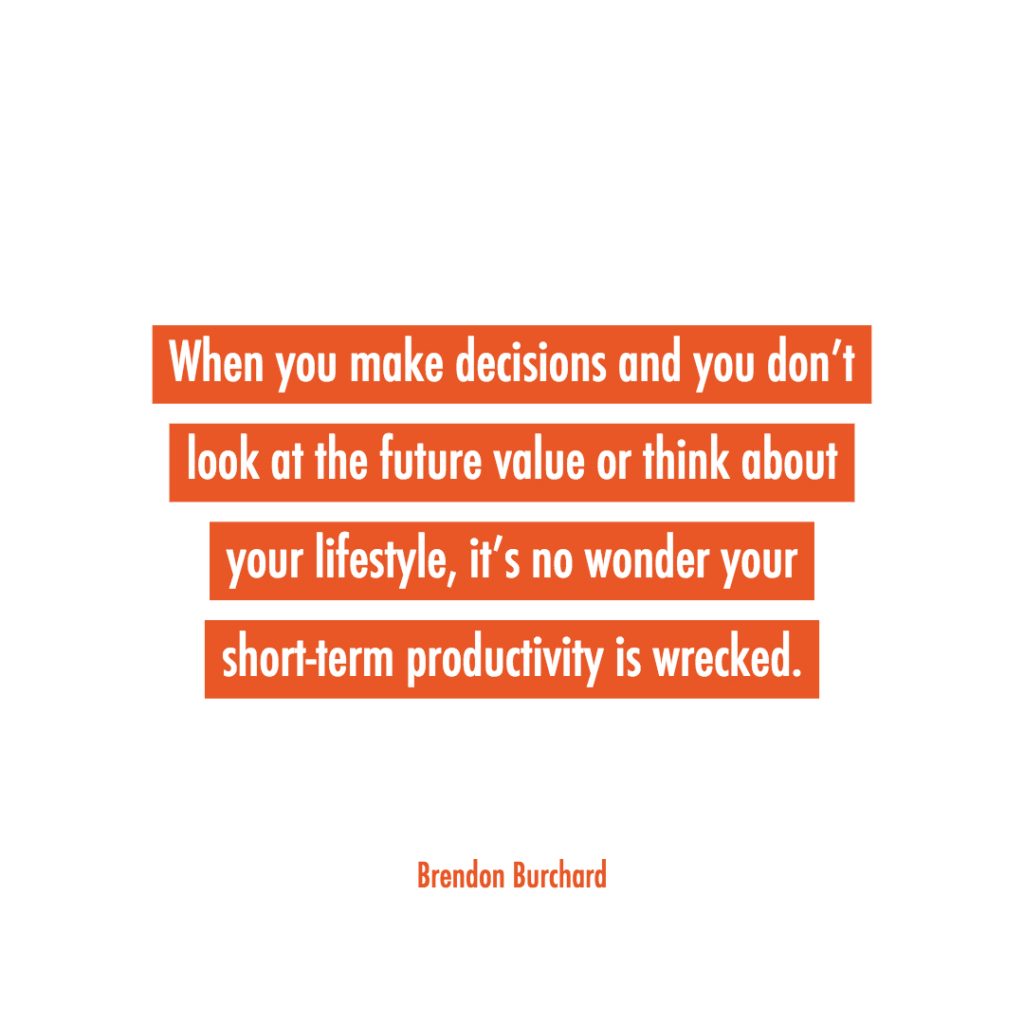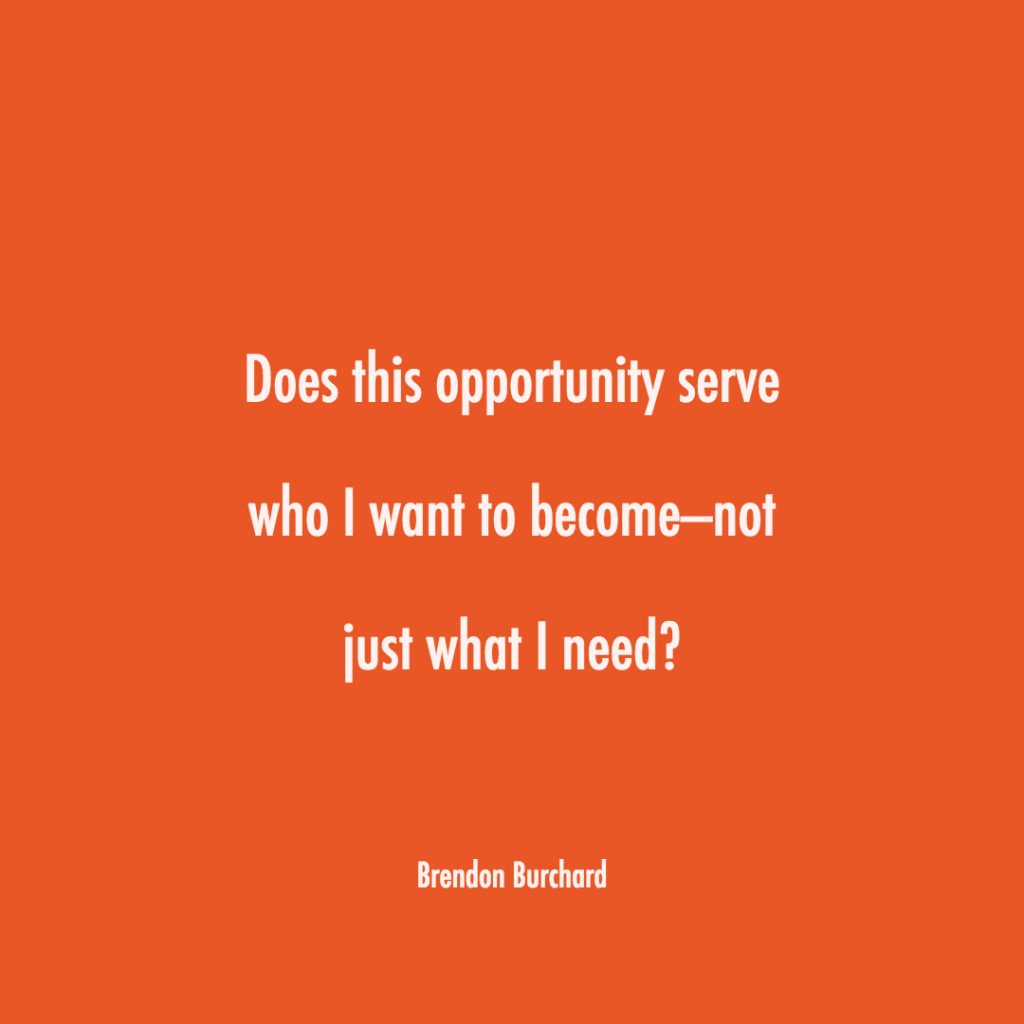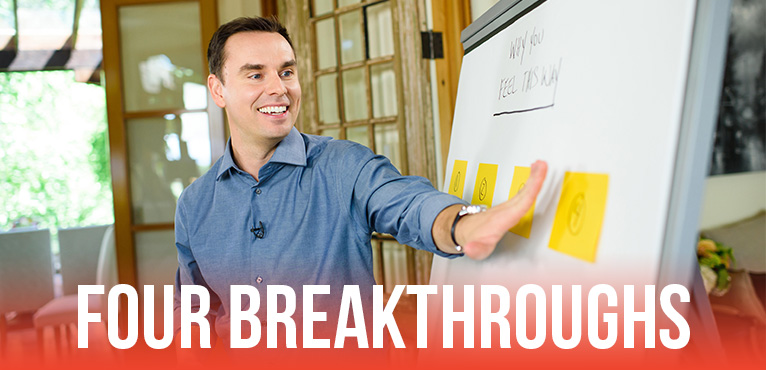SUMMARY
- “You’ve got to look past the short-term and go for the long-term plays. The long-term value will change your life.”
- Use this powerful framework to decide on the opportunities to take on that are MOST aligned with your goals.
- “Your job is to always be honoring, protecting, and standing at the gates as guard and champion of your future.”
- Watch the video to get the full training.
- This is a MUST WATCH episode on how to evaluate opportunities so that you stay on track with your long-term goals!
- Get practice using this framework to pick the RIGHT opportunity for your long-term goals! Complete the worksheet for this training here.
- Already have the High Performance Planner and CRUSHING each and every day? Let’s celebrate you! Take a photo with your planner and use #HPXlife .
HOT NEWS & DEALS!
- Free Book!
My blog readers get a complimentary copy of my new book High Performance Habits, while supplies last! I bought 1000 for you – so no charge for the book itself – but I do ask you pay your shipping. While supplies last. Get yours here. - 8 Online Courses for $10!
My blog readers also get an exclusive $10 trial to access ALL my personal development courses! Click here for the $10 trial. Students call it “the Netflix of Personal Development.” You’ll call it the curriculum that changed your life forever! - High Performance Planner!
This is the 2-in-1 planner and journal achievers use to win the day and accelerate long-term success. Get yours here (while supplies last!
DID YOU KNOW?
I give weekly prizes, gratitude and shout-outs to our students, so post a screenshot or video on Instagram and use #TheBrendonShow! I can’t wait to hear your thoughts about this episode!
RELATED POSTS
Rethinking Productivity
Productivity Design: Distraction vs. Discipline
How to Stick to Your Goals
Simple Time Management Rules
Opportunity Overwhelm? Do This




FULL TRANSCRIPT
[The following is the full transcript of this episode of The Brendon Show. Please note that this episode, like all TBS episodes, features Brendon speaking extemporaneously–he is unscripted and unedited. Filmed in one take, The Brendon Show has become one of the most viewed unscripted, direct-to-camera self-help series in the history of Youtube. It has also been the #1 Podcast in all of iTunes and is regularly in the top podcasts in Self-Help and Health categories around the globe. Subscribe to the free motivational podcast on iTunes or Stitcher.)
People in productivity always ask the first question: “Brendon, how do I evaluate things? I’m a productive person, but I keep getting distracted. Or, I have two good options; and I’m not sure which one to pick.”
I’ll share with you my shorthand frameworks. It’s my back-of-napkin strategy I can do that really helps me decide between two different things because I get offers all the time. As you can imagine, it can be overwhelming.
Here’s the formula: TERMS < ROI + FV + L + PD
This is my magical shorthand that helps me so much. The TERMS of any deal have to be less than ROI plus FV plus L plus PD.
I have option A or option B. I’m going to run them both through this equation, and whichever one wins is the one I’m most likely to choose. If they’re really close, I’ll run them through a second framework.
#1. TERMS: Time. Energy. Resources. Money. Sanity.
This means the terms of any deal have to be less than what I think I’m going to get out of it. It’s a very utilitarian value.
If I’m going to put a bunch of stuff in, I better get more out. And what I found is that if I have a deal, and I’m going to put a bunch of time, energy, resources, or money into it, I better get more out of it.
But what my magical thing was, was the S. This is the one no one ever thinks about and everyone screws up. Utilitarian-minded, logical, strategic people make decisions based on time, energy, resources, and money. They forget the S in the equation.
You have to think about every bad decision you ever chose versus something else and found yourself thinking: “I wish I didn’t do that.” You just did not consider this thing called sanity.
Consider this: How much time, energy, resources, money, and sanity am I going to have to put into this thing?
How many of you have ever done a deal where you had to work with someone who drove you insane? There was great money and great output, but the input was your own sanity.
Entrepreneurs especially make this mistake all the time. They don’t think about how much craziness is going to go into something. They just get attracted to the time, energy, resources, and money. They’re not thinking about the lifestyle, community, or other things that could really shape how sane the endeavor is.
That’s one thing I’m proud of doing with CHPC. We make this a very sane, calming, and comforting community. We do things step-by-step. It’s not scary. I think it can be easy to get attracted to things that drive you insane. It’s important for you all to care about your sanity, so you can bring the joy!
#2. ROI: Return on Investment
So whatever time, energy, resources, money, and sanity I put into something, has to be less than what I get out of it in terms of ROI.
You know what that means—return on investment.
So this is a straight one-to-one. Whatever I put into it, I better get that out of my investment. It better save me some time, build my energy, build my resources, or my money, or I don’t want to do it. That’s straight up return on investment.
#3. FV: Future Value
And then FV is where most people fail to have strategy. FV stands for “future “value.” Never do anything just for ROI.
This is where they wreck kids in business school. They wreck them because we’re still teaching straight-up balance sheet mentality in the world. That’s why our relationships are wrecked, because we’re trying to have a balance sheet scorecard with our spouse.
We’re trying to equate things out with our spouses. How’s that working for you?
We start ruining our relationships because we’re trying to get that balance sheet just even, and in real life, we want future value built into deals.
If you’re going to do something, I want you to be able to look out in the future and say, “Wow, that’s going to benefit me in one year, two years, three years, four years, five years. I can see how moving that piece right now, that’s going to be a building block that’s going to serve me later on.”
And if you can’t see that, whatever deal you’re doing as a stepping stone, don’t do the deal. And especially don’t get trapped in the idea of thinking whatever deal you’re going to do is a final stepping stone.
If you’re starting out, you might say to yourself, “That deal will change my life. That’s it, that’s all I need. I’ll be good for life.” That means you’re engaging in short-term survival thinking, not strategic growth thinking.
When you start thinking about future value, you make very different decisions.
It makes you write different books. It makes you build different programs. It changes the way you sell. It changes the products that you build in your company.
You’ve got to go back to future value thinking, including every little thing that you do.
If you hire people, don’t hire people to fill in a short-term need. Hire future value players.
Date future value people. Don’t have short-term friends just cause you need to lean on somebody who’s a complainer. Create friendships with future value people.
Your job is to always be honoring, protecting and standing at the gates as guard and champion of your future.
You’ve got to look past the short-term situations, and go for the long-term plays. Why? The long-term value will change your life.
#4. L: Lifestyle
If entrepreneurs typically suck at sanity in their evaluations, then on the other side, they always fail on the big L – Lifestyle.
They’ll take the deal because it’s a good time, it’s energy, it’s making a lot of money, and it’s not too crazy. “It’s not too crazy, I can handle it.”
But they’re not thinking on the other side: “Boy, if I say yes to that, that means I’m going to be working 20 more hours a week.” Who’s ever said “yes” to something that made you work 20, or 30, or 40 more hours a week, and you didn’t anticipate it? I’ve been there too.
When you make decisions, and you’re not looking to the future value or thinking lifestyle, no wonder your short-term productivity is wrecked.
Why is your productivity wrecked? Because you said “yes” or jumped into something that wasn’t your thing. It wasn’t of your character. It wasn’t who you are. It wasn’t the lifestyle you wanted to embody. It wasn’t who you wanted to become.
#5. PD: Personal Development
And that’s because you didn’t take into account personal development either.
You didn’t think: “Does this grow me? Does this make me be who I want to be?”
Is the deal, what you are doing, going to help you grow into the best you? You can’t keep saying “yes” or keep evaluating things like: “Well, that sounds good,” just because it’s good.
Does it serve who you want to become?


